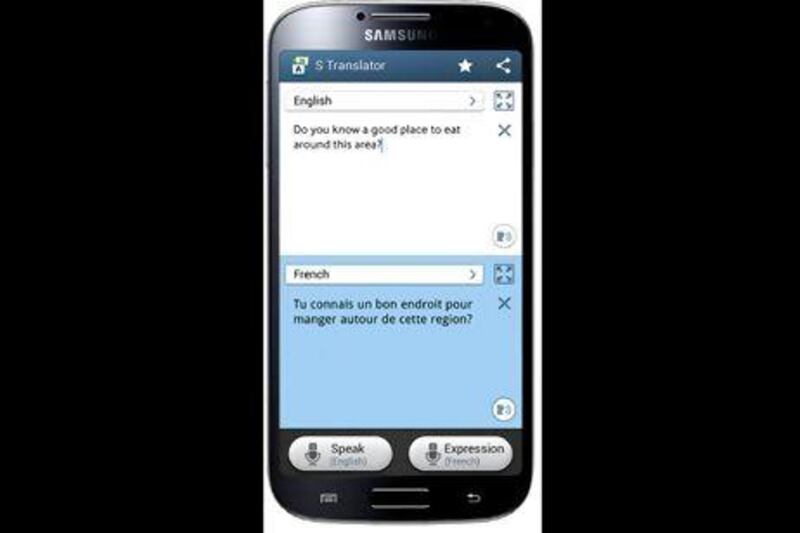The digital revolution has demolished many of the barriers that once kept us apart from each other. In the online world, time and distance are nothing: today, you can sit down in London and talk face to face to a friend in Los Angeles. It’s meant a revolution in the way we make friends and family a part of our lives, and it’s made our work more efficient.
Indeed, the online space has even allowed us a route around the ultimate communication barrier: language difference. The ubiquity of Google Translate and tools like it has helped the web become a place of cross-cultural free-for-all, unlimited by mutual incomprehension due to language.
But what happens when a web page isn’t enough? What happens when I want to talk to the guy who wrote that page because, for example, we’re both professors of marine biology and together we could do great work if only we could talk? So far, there have been no great solutions. And you’ve got to think that makes mankind a whole lot less productive than it might be.
Now, a new batch of amazing tools are about to change the way we communicate. And these tools aren’t at the prototype stage; one is built into a smartphone you can buy today. The new Samsung Galaxy S4 comes pre-loaded with S-Translator, an app that offers voice translation at the speed of conversation. S-Translator recognises nine languages – including English, French and Mandarin – and users simply speak their sentence and wait for the S4 to translate and speak it in their target language. Arabic is not currently among the nine languages supported, but with many in online forums asking “why no Arabic?”, it’s surely only a matter of time until Samsung addresses that omission.
Meanwhile, Japan’s largest mobile network, NTT DoCoMo, has launched an app that allows users speaking in different languages to have a real-time phone conversation. The Hanashite Hon’yaku app for Android devices provides a translation of the speaker’s conversation after a slight pause, and then waits to hear for a reply. France’s Alcatel-Lucent is working on a similar product, WeTalk, and in November Microsoft showcased real-time English to Mandarin translation at its Research Asia 21st Century Computing event in China. The software not only translates speech, it also reproduces the timbre of the speaker’s voice.
Real-time voice has been a communications dream for decades. Now, it’s fast becoming a reality. And that, surely, means a whole new revolution in what is possible. It could mean a world where you’re – really, this time – just as likely to use, say, an online bank in France as one in your native New York.
No wonder the Google chairman Eric Schmidt, writing in his new book The New Digital Age, repeatedly cites real time-voice translation as one of the technologies that will transform our world, opening "the floodgates to the formation of much broader virtual networks than anyone has today".
But language barriers are so old, so established, that it has been easy to remain blind to the ways in which they hold us back: the deals never struck, the research initiatives never conceived of, the nascent friendships never cemented. What will a world free from language barriers feel like? We’re about to find out.
David Mattin is the lead strategist at trendwatching.com
For more trends go to https://www.thenationalnews.com/trends
Follow us
[ @LifeNationalUAE ]
And follow us on Facebook for discussions, entertainment, reviews, wellness and news.





